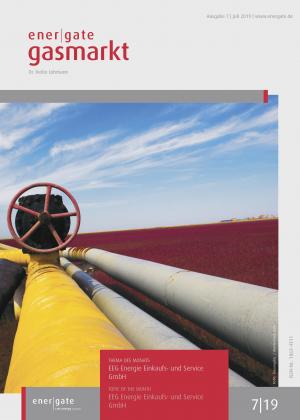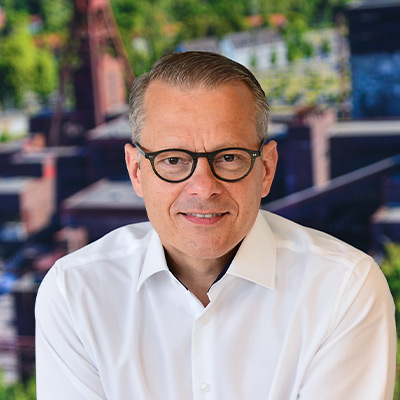Topic of the month: EEG Energie Einkaufsund Service GmbH
Last summer, GETEC Energie acquired the trading company EEG Energie Einkaufs- und Service (ener|gate Gasmarkt 09/18). The sellers were 31 municipally-owned utilities. Before the trading company was sold, it had a rough time. Difficulties already started in 2014. It was the time when a cooperation with Quantum, another trading company of municipal utilities, started. The idea had some logic: In a challenging competitive environment, each company should focus on its strengths and also offer these services to the shareholders of the other company and external customers. EEG was strong in processes like balancing group management, portfolio management and network operator processes, while Quantum had its strengths in the operation of a virtual power plant and the related intraday trading. The whole story looked like a love relationship, and the cooperation gained strength – a merger of the two companies was more or less decided. But the EEG shareholder assembly voted in 2017 against the merger. However, it was never transparently disclosed why. After the failed merger, EEG’s turbulences increased. The continuation of the companies was questioned. The managing director at the time, Hubert Tschuschke, evaluated all options of continuing the business more efficiently, from selling the company to a shutdown of operations (ener|gate Gasmarkt 01/18). At the time, some shareholders and several customers said goodbye to EEG. The staff, on the other hand, mostly remained on board.
Finally, the company was sold to GETEC ENERGIE with a clear commitment of the new owner to keep the name and Henstedt Ulzburg (north of Hamburg) as the place of business. Marc Wiederhold from GETEC ENERGIE was appointed managing director. Mr Wiederhold is a manager with a long track record as a sales expert who worked for different companies (ener|gate Gasmarkt 10/18). ener|gate Gasmarkt talked with Mr Wiederhold about the current status of the development of the company. One thing that was changed was the claim: “Moving Together” was changed to “Energy with Vision”. And now a lighthouse is shown on the starting page of EEG’s web page. Mr Wiederhold explained in the interview why this is important for him.
Merger & AcquisitionsUniper/Fortum
It was always clear when Uniper was demerged from E.ON that E.ON would sell its 47 per cent share in the new company step by step. But Mr Teyssen assured that the shares would be offered to the public at the exchange. Therefore, it must have been a shock for Mr Schäfer – and this is a story often told – when Mr Teyseen revealed to him that E.ON would sell the complete share to Fortum with the consequence that Fortum had to make a public offer to the outstanding shareholders as stipulated in the German stock cooperation law.
In April and May, developments occurred which I cannot really assess. Two active hedge funds with shares in Uniper, Elliot and Knight Vinke, attempted to put pressure on Uniper and Fortum with motions for the Annual General Meeting. Uniper‘s management was to be instructed to prepare a control agreement between Uniper and Fortum (Elliot). The business unit International Production (Russia) was to be demerged to a separate company, or, alternatively, the Swedish portfolio was to be sold. All motions were finally withdrawn after Fortum (the company now has almost 50 per cent of the shares) made clear to the funds that it would not support the motions. This was communicated to the public as a trust-building measure. But for many Uniper staff members it was done too late. Furthermore, the initiative was diluted because during the General Meeting, Fortum again rejected or postponed the discharge of the members of the executive board for the business years 2017 and As a consequence of the postponement of the discharge, the remaining executive board members Mr Rümmler and Mr Martin decided to resign and to leave the company at the beginning of November at the latest.
When Mr Martin and Mr Rümmler leave, the situation will not be easier. Both are experts in their units and played an important role internally and externally, and developed the business model. Although Mr Martin, as an Englishman who did not speak German, always appeared a bit like an alien in the Uniper executive board. But he knows the global gas markets very well, is very analytical, and is allegedly good at making decisions. For sure, when Mr Martin leaves, it will be a disadvantage for the further development of the gas trading business.



